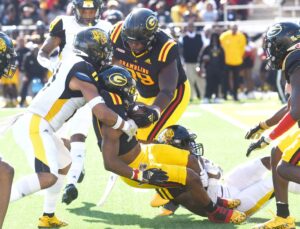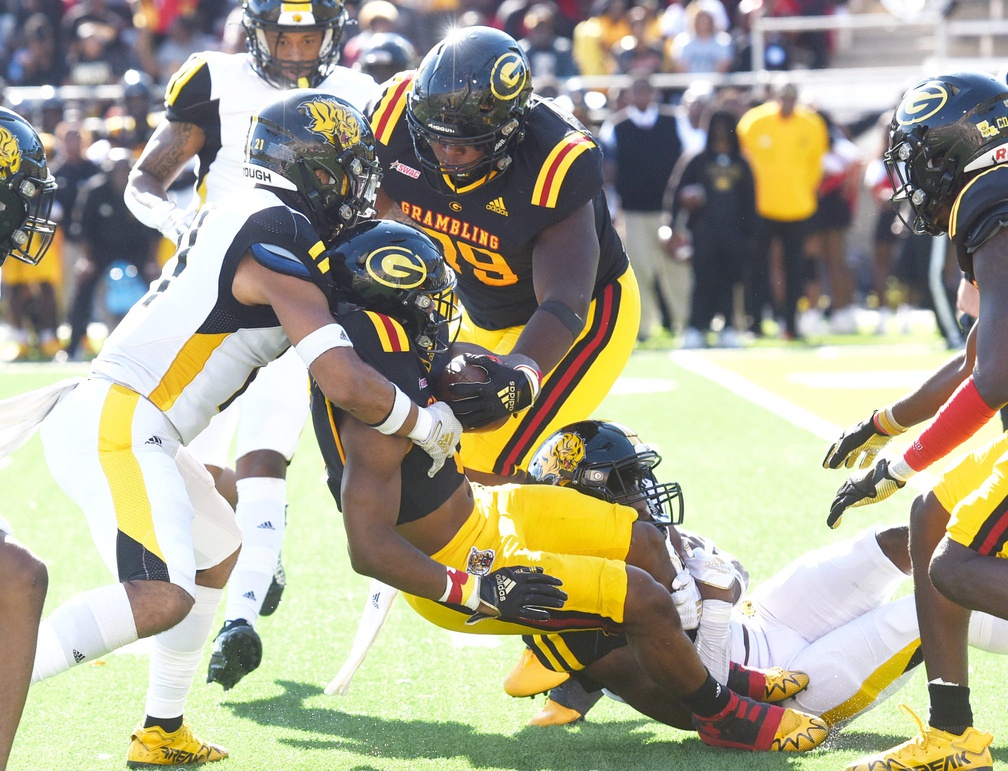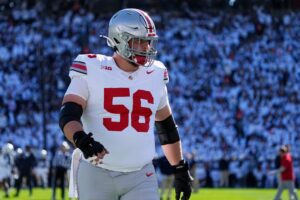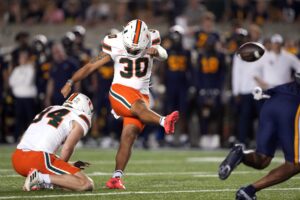Football schedules have always been a hot topic. In the College Football Playoff era, schools’ strength of schedule is part of the fully subjective process of determining the four CFP teams. The format is changing into something closer to a true playoff system. The field is expanding to 12 and five of those teams will be conference champions. The rest will be at-large selections and the selection committee will still use the schedule.
Football schedules also make for good online topics. There was the SEC vs everyone else argument about November cupcake games. That’s largely going away. ACC and Big 12 fans argue about who has the tougher schedule. The softer games usually end up on the bottom tier of conferences’ TV options.
Recently, Ohio State dropped UConn from its 2025 football schedule. The Buckeyes then replaced UConn with Grambling, a historically black(HBCU) Football Championship Subdivision school. This caused a stir among college football fans. Why did Ohio State buy out UConn, a fell Football Bowl Subdivision school, and replace them with a lower division program?
So why should the FBS maintain a relationship with FCS? The short answer is that FBS schools need to schedule FCS schools to balance their budget. The football schedule is the basis for the rest of the athletic department.
Balancing the Budget
As the legal process of several cases against the NCAA develops and plays out, schools are starting to see how the landscape is changing. With the settlement of House vs NCAA likely coming to fruition, part of it allows for schools to create a pool of money to be used to compensate players. Considering football is the breadwinner for many university athletic programs, schools need to maximize their revenue to adjust to the changing landscape. Balancing the budget was already a challenge for most schools. Now, it’s even more daunting.
Let’s go back to Ohio State/UConn. Why was this game canceled? It could be one of several reasons. The game versus UConn was scheduled for October 18 and the Grambling game is now on September 6th. Where it sits on the football schedule could be a reason. UConn might be potentially revving for a conference affiliation change as it’s currently one of the few FBS independents. It ultimately was a mutual decision where Ohio State agreed to pay a $650k buyout, one-third of the $1.95 million guarantee. Ohio State’s guarantee to Grambling is a cool million, a king’s ransom for an FCS team. Usually, FCS schools receive a fraction of that. In short, Ohio State has moved this out-of-conference game from mid-October to early September and will save them $300k. UConn could potentially find another buy game to make up the missing guarantee. Maybe Ole Miss or USC is available.
The budget issue affects all schools. Group of Five schools are struggling too. They agree to buy games with power conference schools for million-dollar-plus payouts out of necessity. MAC schools like Ball State might benefit from a lower travel expense for conference games, but the revenue they generate from home games and their media package is much lower than at a larger school like Oklahoma State or Stanford.
This Isn’t Just a FBS Problem
This isn’t just limited to FBS. FCS schools also partake in money games of their own. Announced earlier this month, Youngstown State football scheduled a 2025 home game with Mercyhurst. Mercyhurst is a small school that is starting to reclassify from Division II to FCS in 2024. YSU is guaranteeing Mercyhurst $100,000 for the game.
FCS schools playing against non-Division I opponents to balance their budget is a thing too. In 2022, there were 40 games between FCS and non-Division I schools. Non-Division I includes Division II, III, NAIA(a small association similar to the NCAA), and NCCAA(an association for Christian colleges). In 2024, that number has jumped to 57. In the case of Mercyhurst, since this is their first season in Division I, they still have several Division II teams on their football schedule. Most schools don’t have more than one.
Breaking From the NCAA
Periodically, there has been talk of power conference schools breaking away from the NCAA to form their own football league. The Knight Commission, which specializes in college athletic reform, has stated that FBS-level college football should have its own governance structure versus being under the auspice of the NCAA. The idea of a “Super League” was proposed as a way to try and level the playing field financially while creating some anti-trust protection. It’s an interesting idea on paper and P4 fans like it. However, it can create football schedule problems if the league is fully segregated from accessing the other NCAA schools. If the Ohio States of the world need at least seven home games, who in the Super League will drop to five? Better yet, who can and still balance their budget?
The truth is that the FBS needs the FCS. Sure, talking heads can say for power conference schools to schedule buy games with FBS schools only, but they cost at least double what FCS schools cost. With the need to find money to be used for compensating players, schools need to be prudent with their football schedule. That means scheduling smartly. If one FCS game counts towards bowl eligibility and you can save something like $500k to a million by scheduling a lower division team, especially as an early season tuneup, it’s not a bad idea. It’s also a financial boon for the lower division school. That mid-six-figure payout is an important facet of their budget.
Into the Unknown
As we venture into unknown territory financially, the need to balance the budget will continue to become more difficult. Presidents and athletic directors will have to consider all options, including extreme measures. They might decide to cut sports or even shut down entire departments. Smaller Division I schools Lindenwood and Loyola Marymount are dropping multiple non-revenue sports this fall. Lindenwood is dropping ten. Last year, Hartford dropped down from Division I to Division III. This year, multiple schools have shut down altogether. Some of these closures include Division II member Notre Dame College and Division III Birmingham Southern, who made it to the 2024 DIII College World Series. North Carolina State dropped its rifle team in 2023. No one is safe.
Once the House vs NCAA settlement becomes finalized and the financial impact begins impacting schools, we could see more changes in college athletics. One thing is still certain: When it comes to the football schedule, the FBS still needs the FCS.







